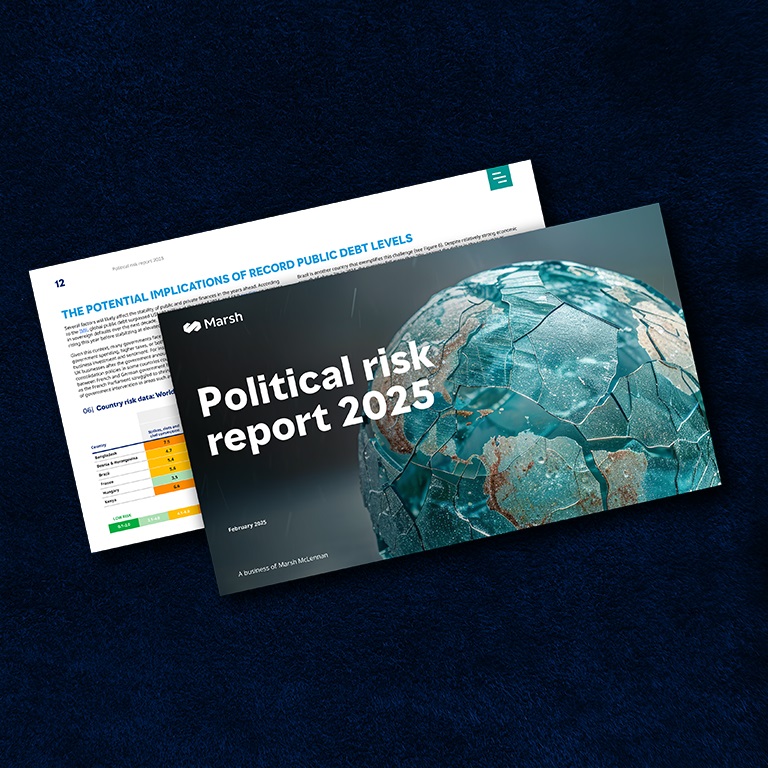,
12/03/2024 · 3 minute read
Are you considering expanding your business into high-growth and/or high-risk territories? Or perhaps you are already operating in these markets? In either case, understanding the quantifiable benefits of political risk insurance (PRI) is crucial to your investment decision-making process.
S&P Global’s study reveals, for the first time, the significant impact that PRI can have in curbing the country risk premium (CRP), which must be factored into calculating a project’s expected return on investment. By curbing the CRP, PRI effectively improves the investment’s valuation and enhances its internal rate of return (IRR).
This updated understanding of the impact of PRI is game-changing. While PRI remains an important form of risk mitigation, it has typically been seen as a negative cash flow item. Far from a cost, S&P Global’s independent conclusions demonstrate the additional value of PRI — generating higher investment returns and asset valuations, particularly in emerging markets.
Traditionally, PRI has been undervalued due to a lack of quantifiable financial benefits. Now, leveraging S&P Global's Country Risk Investment Model (CRIM), this robust analytical framework can evaluate the value of PRI to your organisation. By compartmentalising country risk into definable buckets and overlaying the mitigation provided by PRI, the approach demonstrates the benefits of PRI in reducing the project's future cash flow due to country risk. It provides you with a quantitative tool to make informed investment decisions.
The analytical framework used within the report empowers you to consider investments in projects in higher risk locales, even if they fall outside your traditional risk tolerances.
Don't let political risk hinder your growth and profitability — unlock the full potential of PRI. A new perspective on the cost and benefits of political risk insurance for foreign direct investments is your roadmap to success in high-growth and/or high-risk territories.
With its comprehensive insights and actionable recommendations, you'll gain a competitive edge and maximise your returns. Download the report to take control of your investments and secure a prosperous future.
S&P Global (Nasdaq: INFO) is a world leader in critical information, analytics and solutions for the major industries and markets that drive economies worldwide. The company delivers next-generation information, analytics and solutions to customers in business, finance and government, improving their operational efficiency and providing deep insights that lead to well-informed, confident decisions.S&P Global has more than 50,000 key business and government customers, including 80 percent of the Fortune Global 500 and the world’s leading financial institutions. Headquartered in London, S&P Global is committed to sustainable, profitable growth.
The S&P Global economics and country risk team takes an intelligence-led approach to forecasting the full spectrum of commercially relevant political, economic, legal, tax, operational, and security risks, in 211 countries. They provide risk solutions that are data-driven, leverage data science and geospatial analytic tools, and are informed by the largest team of country, banking, and sector risk analysts in the market. The country risk team has more than 110 dedicated analysts and data scientists.
Page Compliance ID

Report,Featured insight
24/02/2025